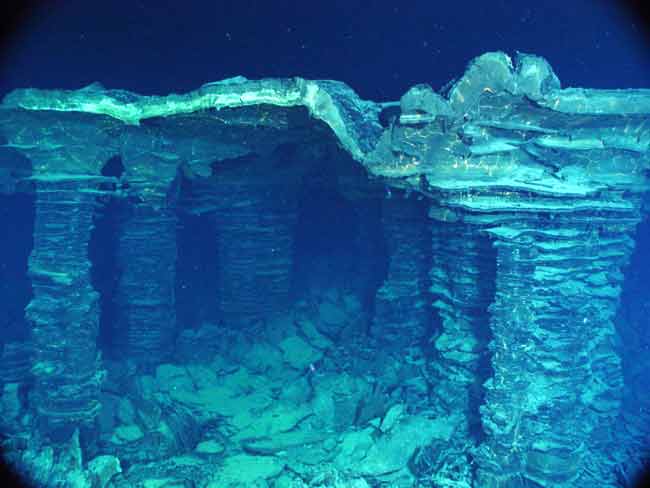Some Like it Hot: Especially This Microbe

A certain type of extremophile is even more extreme than scientists thought. A microbe that converts nitrogen into energy was found thriving in temperatures that shatter previous records for similar organisms.
The new organism is a type of archaeon, a single-celled organism that lacks a nucleus. Many archaeons are extremophiles, organisms that thrive in extreme conditions that most other life on Earth would find inhospitable.
This nitrogen-fixing microbe was isolated from a deep-sea hydrothermal vent below the seafloor in the northeast Pacific and was found to grow in temperatures up to 197 degrees Fahrenheit. Another nitrogen-fixing microbe held the previous record of 147 degrees Fahrenheit.
Other extremophiles have been found living in near-boiling water, extremely high salt concentrations, intense pressures.
The newly-discovered microbe uses an enzyme that converts readily available dissolved nitrogen gas into the more useful ammonia, which it can use for growth. It is believed to be the first reported nitrogen-fixing microbe found in a deep-sea vent.
Because of its ability to make energy at such an extreme temperature, this microbe's discovery could broaden the conditions thought suitable for life below the seafloor--an environment typically poor in useful forms of nitrogen like nitrate and ammonia.
Sign up for the Live Science daily newsletter now
Get the world’s most fascinating discoveries delivered straight to your inbox.

Andrea Thompson is an associate editor at Scientific American, where she covers sustainability, energy and the environment. Prior to that, she was a senior writer covering climate science at Climate Central and a reporter and editor at Live Science, where she primarily covered Earth science and the environment. She holds a graduate degree in science health and environmental reporting from New York University, as well as a bachelor of science and and masters of science in atmospheric chemistry from the Georgia Institute of Technology.









